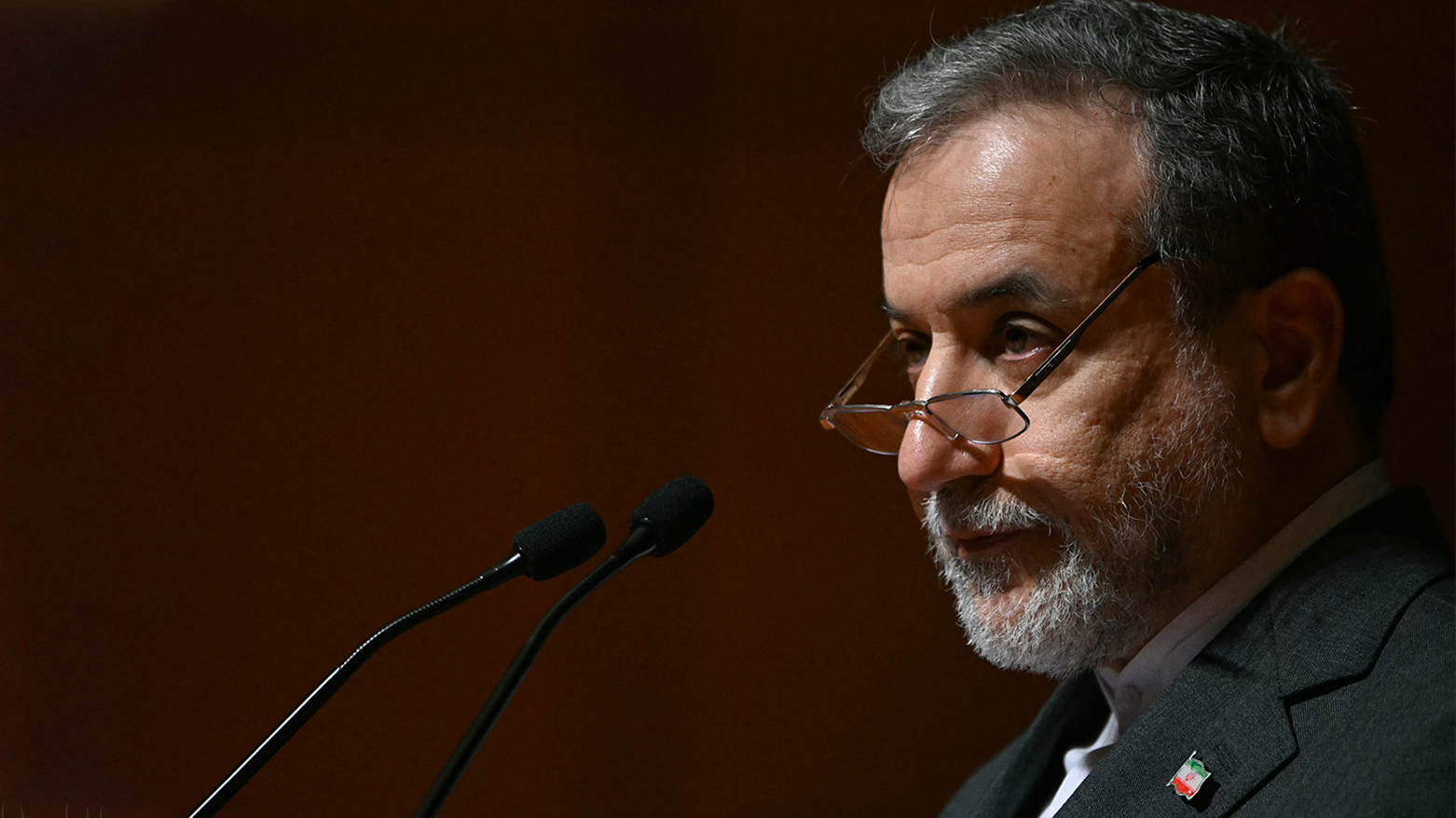Iran Skeptical of Talks as Araghchi Warns: No Dialogue Under Fire
Iran’s FM Araghchi told CBS News talks with U.S. are unlikely to resume soon without military guarantees. He said Iran can quickly rebuild bombed nuclear sites and reaffirmed enrichment as national pride. Qatar mediating possible return to diplomacy.

By Kamaran Aziz
ERBIL (Kurdistan 24) – Iran's Foreign Minister Abbas Araghchi expressed doubt that negotiations with the United States would resume in the near future but insisted that diplomacy remains a viable path forward, despite rising tensions following recent military escalations.
In an exclusive interview with CBS News—his first with an American outlet since the conflict—Araghchi stated: "I don't think negotiations will restart as quickly as that." The comments come days after the U.S. President Donald Trump suggested that diplomatic talks between the two nations could resume as early as this week. However, the White House clarified that no official meetings were currently scheduled.
Araghchi emphasized that Iran would not reengage in negotiations unless there were clear assurances from Washington that no military actions would occur during the dialogue process. “In order for us to decide to reengage, we will have to first ensure that America will not revert back to targeting us in a military attack during the negotiations,” he told CBS News through a translator.
Still, the Iranian Foreign Minister maintained that Tehran has not closed the door to dialogue. “The doors of diplomacy will never slam shut,” he affirmed.
U.S. Strikes and Iran’s Nuclear Infrastructure
The latest round of tensions was triggered on June 21, when the United States bombed three key Iranian nuclear facilities—Fordow, Natanz, and Isfahan—just days after Israel initiated a 12-day aerial campaign on Iranian military and nuclear targets. President Trump characterized the U.S. airstrikes as having "completely and totally obliterated" Iran’s nuclear capabilities.
General Dan Caine, Chairman of the Joint Chiefs of Staff, reinforced this assessment in a news briefing, stating, "Initial battle damage assessments indicate that all three sites sustained extremely severe damage and destruction."
However, Rafael Mariano Grossi, Director General of the International Atomic Energy Agency (IAEA), offered a more measured analysis in a separate statement to CBS News. “The U.S. strikes caused severe damage, but it's not total damage,” Grossi said. He added that Iran likely retained the capacity to resume uranium enrichment within a few months.
Araghchi echoed this sentiment, insisting that technological knowledge cannot be destroyed through bombings.
“One cannot obliterate the technology and science for enrichment through bombings,” he said. “If there is this will on our part, and the will exists in order to once again make progress in this industry, we will be able to expeditiously repair the damages and make up for the lost time.”
Nuclear Enrichment: A Point of National Pride
When questioned about Iran’s intentions regarding uranium enrichment, Araghchi responded, “Our peaceful nuclear program has turned into a matter of national pride and glory. We have also gone through 12 days of imposed war, therefore, people will not easily back down from enrichment.”
Under the terms of the 2015 Joint Comprehensive Plan of Action (JCPOA), Iran had agreed not to enrich uranium above 3.67% purity, the level required for civilian nuclear power.
Enrichment at Fordow was prohibited for 15 years. However, after the Trump administration unilaterally withdrew from the agreement in 2018 and reinstated sanctions, Iran began incrementally breaching the deal’s restrictions.
By 2021, Iran had resumed enrichment up to 60%, a level approaching weapons-grade capabilities.
War of Words Between Leaders
Following the ceasefire that ended the 12-day hostilities between Iran and Israel, Iranian Supreme Leader Ayatollah Ali Khamenei declared victory, writing on social media, “I offer my congratulations on the victory over the fallacious Zionist regime,” and claiming that Israel was “practically knocked out and crushed under the blows of the Islamic Republic.”
President Trump responded with a counterstatement, accusing Khamenei of spreading falsehoods. “Iran had been 'decimated,'” he said, and asserted that he had personally prevented both the U.S. and Israeli forces from targeting the Iranian Supreme Leader for assassination.
Trump is expected to meet Israeli Prime Minister Benjamin Netanyahu at the White House next Monday, a summit likely to include discussions on Iran’s nuclear program and regional security.
Prospects for Renewed Talks Remain Uncertain
The potential for renewed negotiations remains murky. Araghchi questioned the legality of preemptive military threats against Iran’s nuclear program. Trump has stated he would "absolutely" consider future strikes if Iran resumes enrichment above agreed thresholds.
“We showed and proved during this 12-day imposed war that we have the ability to defend ourselves, and we will continue to do so should any aggression be launched against us,” Araghchi warned.
While no concrete date has been set for the resumption of talks, the Iranian Foreign Minister acknowledged that Gulf nations such as Qatar were making efforts to facilitate a return to diplomacy.
“We do not want war. We want to engage in dialogue and diplomacy, but we have to be prepared, we have to be cautious, not to be surprised again,” he said.
The coming days may prove pivotal, as regional actors and international stakeholders await clarity on whether the path forward will be one of confrontation or conciliation.